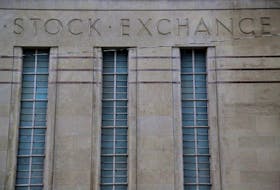By Gabriel Burin
BUENOS AIRES (Reuters) - Political uncertainty over upcoming reform plans in Brazil will continue to cast a shadow over the outlook of Latin America's biggest economy, a Reuters poll of analysts showed.
Prolongation of the tense climate sparked by an initiative to reform the country's generous retirement system threatens to keep business confidence and investment subdued next year, economists said.
Brazilian economic growth was seen at 1.0% by the end of 2019, according to the median estimate of 40 analysts polled July 2-11, half the expected rate in April and the third cut to this year's forecast, in line with other surveys.
The estimate for 2020 dropped to 2.2% from 2.5% in April's poll, flagging worries about a repeat of recent political friction.
A pension reform bill is moving toward passage in Congress after facing stiff opposition, but President Jair Bolsonaro's tax reform and privatization ideas may face similar challenges. "Completing the fiscal adjustment should take several years, requiring unremitting commitment," said Laiz Carvalho, an economist at Santander Brasil.
These proposals will be launched shortly, officials said this month. "Risks refer to the uncertainties of the administration to get support to pass legislation," said Gustavo Rangel, ING's chief economist Latam.
"A solid improvement in economic growth will not be seen until the last quarter of 2019, and growth in 2020 could be compromised as well," said Carvalho.
Companies froze capital spending and hiring plans at the start of the year after debates among lawmakers heated up and protesters took to the streets against the pension overhaul, which aims to save $263 billion in a decade.
Weakness in private consumption arising from high unemployment and a poor export performance added to an investment slump to bring Brazil's economy near a double-dip recession in the first half.
To avoid a deeper economic slowdown, Brazil's central bank is expected to begin an easing cycle this year and cut the Selic rate to 5.75% by end-2019 from the current 6.50%, the poll showed.
MEXICO CONCERNS
Brazilian Economy Minister Paulo Guedes' alignment with Bolsonaro has been a key factor in advancing his reforms. This has not been the case in Mexico, where a moderate finance minister resigned citing "extremism" in economic policy.
The advocacy of fiscal discipline by the former official, Carlos Urzúa, was considered a bright spot in the administration of President Andrés Manuel López Obrador, which has frequently buffeted markets with surprise decisions.
His exit initially shocked domestic markets. However, it remains to be seen how this may affect Mexico's economy. July's poll pegged growth at 1.4% and 1.8% in 2019 and 2020, respectively, a tad lower than in April's survey.
"President Obrador's economic policies have done little so far to encourage new investment in the Mexican economy, either from domestic or international sources," said Beata Caranci, chief economist at TD Economics.
Urzúa's resignation "certainly adds to mounting concerns on that front", she added, noting López Obrador's most pressing domestic challenge will be to convince investors the government continues on solid fiscal footing.
Better relations with President Donald Trump after a rough start may facilitate a recovery in Mexico's export-oriented manufacturing sector, although the risk of tariffs could return as the U.S. election campaign for 2020 gathers speed.
The poll predicted Mexico's central bank would start lowering interest rates from the current 10-year high late this year very gradually to protect the peso currency from market instability.
A much tighter monetary policy is in place in Argentina, part of an austerity plan implemented last year by President Mauricio Macri's government to abate a confidence crisis originating in poor agricultural harvests and some policy missteps.
Forecasts of a 1.5% economic contraction in 2019 followed by a 2.2% recovery next year were little changed from April's poll. Inflation estimates for each year increased by more than three percentage points, to 49.1% in 2019 and 28.6% in 2020.
"Highly contractive policies required under Argentina's IMF stand-by credit program will not allow a strong recovery in the next few years," said Juan Solá, an economist at Elypsis consultancy.
(Reporting by Gabriel Burin; additional polling by Mumal Rathore in Bengaluru; Editing by Steve Orlofsky)









